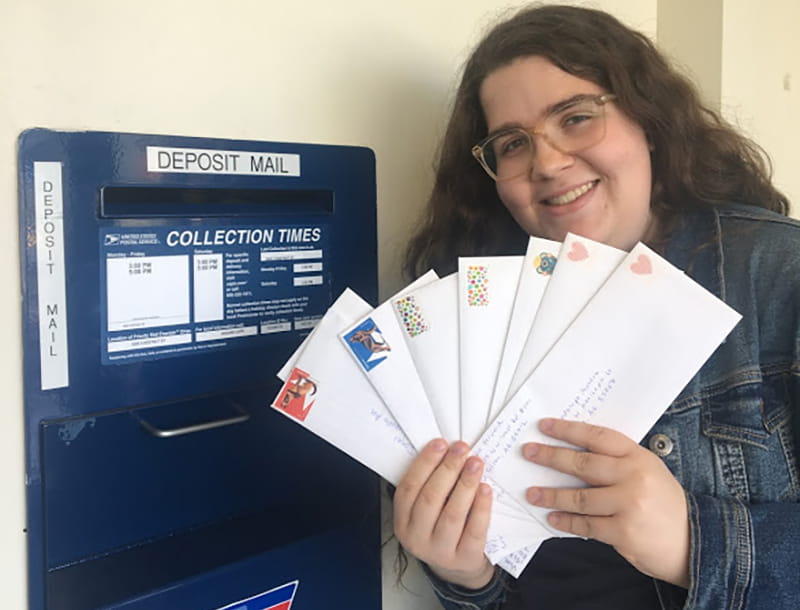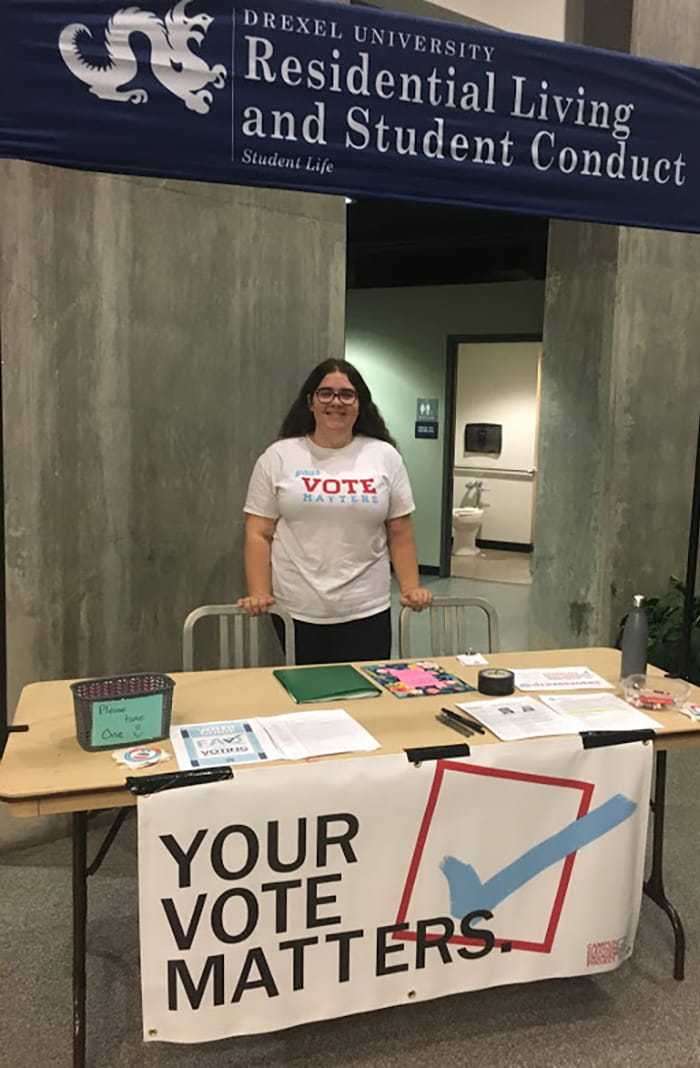Staying Civically Engaged In Between Presidential Elections

If you exercised your civic duty and voted in 2020, but not sure how to remain civically engaged, you’re not alone.
More students came out to vote in the 2020 presidential election than ever before, and we saw about a 10% in student voters nationally. However, voter participation historically drops in between presidential elections, on average during midterm elections (when U.S. representatives and senators are elected). Only 40% of the eligible population votes, and even less for local elections.
Local elections matter. They decide everything from who sits on the school board to who has voting power on city council. Actually, your vote has more power in local elections because there are fewer people voting in those elections. There have been many cases where local races were won by a single vote, which is just one of the many reasons it is so important to stay involved all year long.
It is so crucial that we maintain that momentum and stay civically engaged as students. As young people, there are so many decisions made at the local, state, and federal level that affect our future. From student debt to the job market, there are many issues that affect us that it can be overwhelming at times; one way to deal with that overwhelming feeling is by taking action. Check out these five ways to stay civically engaged all year long and some Drexel-specific resources:

1.) Keep up with Current Events
It may seem simple, but reading, watching, or listening to the news is the first step to stay engaged. It is essential to learn about the world around us because it informs us of relevant issues. Incorporate learning about current events into your daily routine. Try listening to podcasts as you get ready for your day or go through the day’s news alerts on your phone at the end of the day. It is also vital to be conscious of what sources you are consuming your news from; try and find non-partisan, fact-based reporting to get the most transparent picture of events. As students in Philadelphia, it is crucial to learn more about local events that affect the city, so check out local newspapers and magazines. If you are interested in learning more about student voter issues, check out Campus Election Engagement Project, Campus Vote Project, or The Andrew Goodman Foundation for non-partisan articles.
2.) Write to your Representatives
Now that you have cast your ballot, it is important to hold your elected officials accountable. Whether you voted for them or not, your representatives work for you! Ensure that they know what issues matter to their constituents by calling their office, sending an email, or writing letters to them. You can also reach out to their offices directly to set up meetings to lobby about an important issue. Not sure who your representative is or what committees they sit on? Check out the official U.S. House directory, U.S. Senate directory, and the Pennsylvania Legislation directory.
3.) Volunteer
There are so many organizations and campaigns that need volunteers now more than ever! Find an issue you are passionate about and join an organization that is advocating for those issues. Drexel’s Lindy Center has a database full of volunteer opportunities. You can also check out DragonLink to see all the different student organizations volunteering within the Philadelphia community. You can make a difference in an upcoming election by volunteering for a campaign. Candidates running for office need help with phone banking, canvassing, administrative work, text banking, and more. Additionally, many representatives also have youth advisory boards that seek volunteers to give their input on issues important to youth in their district. If you are interested in participating directly with the legislative process you can join the Pennsylvania House Fellowship Program.
4.) Help Your Friends Register to Vote
Elections occur at least twice every year, and local elections are just as important (if not more) than presidential elections. One of the best things you can do in addition to voting is make sure that your friends can vote. Check in with your friends to see if they are registered. Remember, you have to update your voter registration whenever you move, so if you are switching campus residences, you want to update your registration. As students, we can register at either our campus or home residence. Once your friends are registered, make sure they know their polling location and have applied for an absentee/mail-in ballot if they would like one. If you or your friends have questions about voter registration, check out Rock the Vote for relevant answers.
5.) Get Informed About Local Races, Special Elections, and Primaries
There is always an election around the corner, and that means there is always more to learn! In Pennsylvania, the next election is the Primary on May 18. The last day to register in time for the primary is May 3, and the last day to request an absentee or mail-in ballot is May 11. Primaries are when each political party selects its candidates for the general election. Pennsylvania is a closed primary state that means that you must register with that party to vote in a party’s primary. For example, a student registered as a Democrat can vote in the Democratic primary but not the Republican party and vice versa. If you are registered as an independent, you will not be able to vote in the primary, if you want to participate you can change your party affiliation. For Pennsylvania voters, you can learn more about local races, primaries, and regulations at VotesPA.com.
Sarah Resanovich is a fourth-year hospitality management student at Drexel University and a Campus Election Engagement Project (CEEP) fellow.
In This Article
Drexel News is produced by
University Marketing and Communications.
